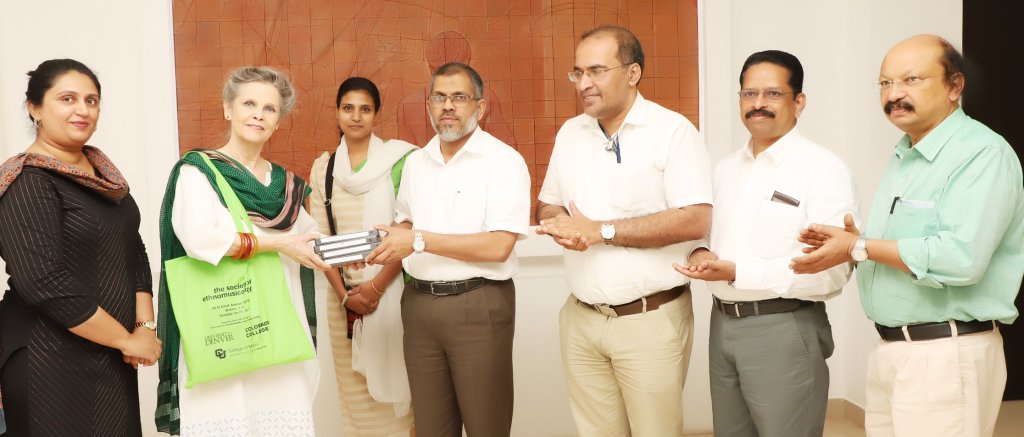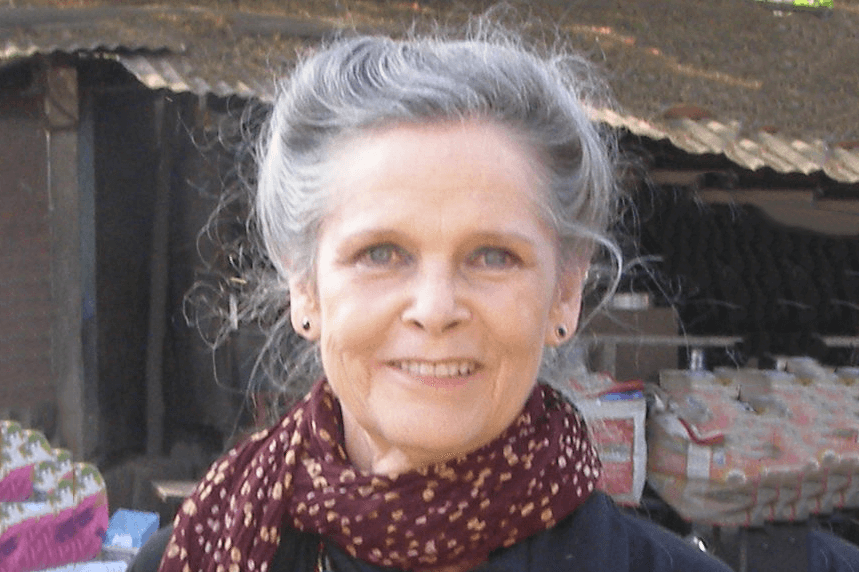Amy Catlin-Jairazbhoy, adjunct professor of ethnomusicology at The UCLA Herb Alpert School of Music, has been appointed the inaugural holder of the Bakë-Jairazbhoy Chair for Indian Ocean Studies at the Pocker Sahib Memorial Orphanage College (PSMO), an affiliate with Calicut University in Kerala, India. The chair was created for the specific purpose of recovering and preserving the musical culture of the Muslim community that resides on the Malabar coast of India, and in particular the “Mappila pattu,” popular rhythmic songs that communicate religious and secular themes.
Many of the Mappila songs are in danger of being lost—a common threat to cultural traditions that depend on oral transmission. Fortunately, a rare collection of Mappila songs exist in the Ethnomusicology Archive at The UCLA Herb Alpert School of Music. Catlin-Jairazbhoy plans to have the Mappila recordings digitally re-mastered and archived. Arabi-Malayalam lyrics will be transcribed and translated into English, and interpretive notes will be prepared for public release.
It will be a preservation project, but also one of rediscovery.
“Most of these Mappila songs were unknown to the Mappila community when I repatriated them to the Calicut University Department of Folklore Studies Program and PSMO College in 2018 and 2019,” said Catlin-Jairazbhoy. “After this restoration project, local Mappila singers will have access to high-quality recordings which they can learn to perform and teach again, after a hiatus of 85 years.”
The Mappila songs are a cultural goldmine. They include Islamic songs on the Hijra and the prophet Mohammad, an oppana dance song cataloging the prophets of Islam, another oppana about the conversation of the prophet Mohammed with the King of Damascus, and songs detailing the Mappila kings of Cherur. The songs preserve Muslim literary and spiritual stories and also provide windows into the everyday life of the Mappila people. Some songs describe blessings for bridegrooms, boat landings, rowing on the open sea, and descriptions of storms. Two of the recorded songs are sung by Mappila women.
Dutch ethnomusicologist Arnold Adriaan Bakë originally recorded the Mappila songs in 1938 on a Tefifon recorder. The recordings were made in cities and towns across Kerala, as well as several from the Laccadadivian islands off the Malabar coast. The recordings exist as part of a larger collection of South Asia music, recorded by Bakë. All 768 of the Tefi recordings were transferred in 1963 to reel-to-reel audio by Nazir Ali Jairazbhoy, the founding chair of the UCLA Ethnomusicology Department.
Catlin-Jairazbhoy has been working with the recordings since 1982. She and Nazir Ali Jairazbhoy repatriated recordings of Mappila songs in 1984 to the Archives and Research Center for Ethnomusicology (ARCE) at the American Institute of Indian Studies, conceived and built by Nazir Ali Jairazbhoy with the assistance of large grants from the Ford Foundation and the Smithsonian Foreign Currency Fund. They co-published their first video-monograph Bakë Restudy 1984 as a one-hour video and then released The Bakë Restudy in India, 1938-1984: The Preservation and Transformation of Performance in Tamilnadu, Kerala, and Karnataka in 1991, which won an award from the American Anthropology Association’s Society for Visual Anthropology in 1992.

Catlin-Jairazbhoy’s published work extends beyond Mappila songs to the larger Indian Ocean world. She has published extensively on the music of Hmong tribal refugees of Laos and Cambodian, refugee music and dance in America, South Asian Islamic music, aspects of South Asian diaspora, Karnatak classical music of Tamilnadu, African-Indian Sidi music and ritual in Gujarat, and music of the Goddess Renuka-Yellamma of the Deccan. She is widely considered one of the world’s leading experts on South Asian classical and folk music.
“I am excited about bringing together the world-renowned Ethnomusicology Archive at UCLA with the envisioned PSMO Archive,” said Catlin-Jairazbhoy. “I have also invited the collaboration of ARCE. It will be an exciting collaboration, and I am pleased to launch it.”


